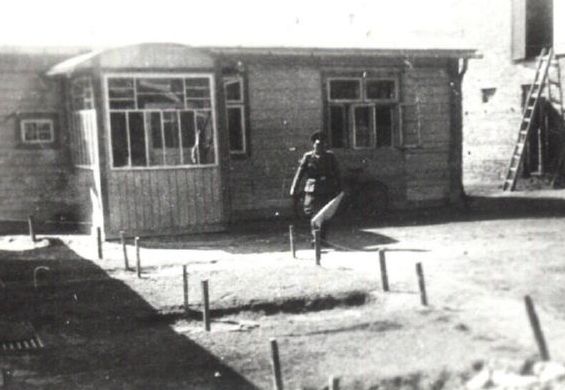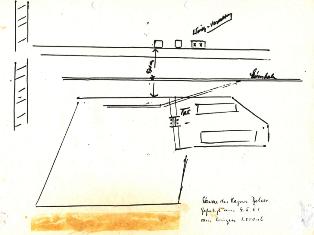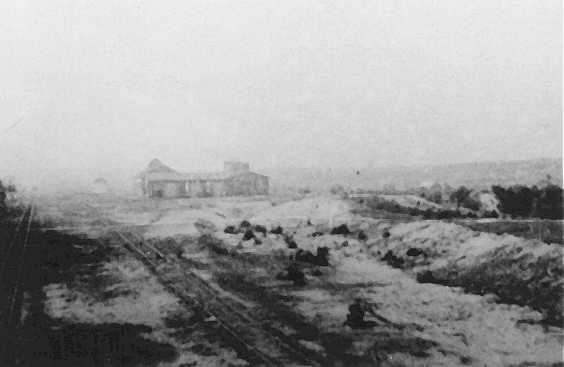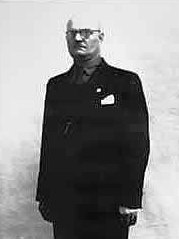Holocaust Education & Archive Research Team |
|
Trials Introduction to the Holocaust Trials
Trials
Interrogations & Testimonies
The IMT Series Nazi Justice
| |||
Record of Interrogation In Cologne - Robert Lorent April 5th, 1961
[photos added to enhance the text]
The Criminal Police in Cologne who informed the subject matter of the hearing and warned of the need to speak the truth, states the following:
In February 1942 I reported to the Community Charity Foundation in Berlin, which was then in the process of dissolution. The personnel was largely passed to the office of Globocnik. I need to amend this statement and say that about 20% of the personnel were thus transferred and of these a large part continued to be paid by the Foundation.
These payments were made by a Loans Office of which I was in charge. My knowledge of the camp Belzec and its staff stem from this arrangement.
I went to Belzec twice. I no longer remember the exact dates. There was an interval of about 6 weeks to 2 months between these visits. The second visit in 1942 must have taken place before the weather turned cold as I clearly recall that I spent the night in a PKW, near the railway station Rawa-Ruska, there was a guarded market-place – which I could not have done had it been really cold.
The purpose of my visit was to deliver supplies to the camps in the Lublin region. I seem to remember that the goods train was shunted into sidings at the camp (Belzec) and that I spent the night in a sturdily constructed brick building, on a road about 500 m distant from the camp.
Close to this was the billet of Wirth. The staff which accompanied the goods train became the responsibility of the admin staff member Fichtner. I already knew him from a previous meeting. I am of the opinion he must also have been employed in another Foundation and that I must have got to know him when this was dissolved.
From my two visits I clearly remember only Wirth and Fichtner. In the course of the dissolution of these organisations, mainly at evening get-togethers, I learned the names of other people, and likewise because I was in charge of these organisations, but this did not mean I could recall individuals.
On one occasion – I no longer remember whether it was my first or second visit – a trainload of Jews arrived while I was there. Accompanied by a SS man I was able to watch the unloading of the Jews. Who the SS man was I cannot say now say.
I also do not know which rank he had. There would be no point in showing me photos of possible people for me to identify, nor any purpose in naming them. One has to take account that 20 years have since passed.
The question as to who were materially involved in driving the Jews out of the carriages is not one I can give a straight answer. The train consisted of ordinary passenger carriages. The disembarkation of the Jews took place with relatively little trouble, and I gained the impression that after a long journey the Jews were glad to be able to breathe some fresh air.
Where there was a certain melee order was restored with the help of a Jewish working party and other volunteers. After a short while the Jews were addressed, possibly by Wirth, but I cannot be certain about this, as I was not interested in these details.
The way I have put this does not do justice to my attitude, I should like to reply to the question in a useful manner, but I found this experience too upsetting for me to be able to remember these things.
After the address the Jews though clearly disturbed went surprisingly peacefully along the way pointed out to them which led to the huts. I do not believe that the Jews knew what was in store for them.
I did see, for example, how an SS man supervised the hut where the Jews had to undress and another SS man then pointed them in the direction they had to follow but I cannot say who these SS men were.
I mean that I am not in a position to say it was this or other SS man who carried out a given function.
I am unable to answer the question regarding the organisation of the SS staff or which rank was responsible for which function. I never knew who was camp commandant or his deputy, or who was chief NCO, or section leader. In my opinion the camp commandant was Wirth. I cannot say whether Wirth had an adjutant or who he might have been.
According to my information after the closure of the camps in the Lublin area, 4 men belonging to the volunteer group went to Italy. I do not know their names.
A number of names were mentioned to me regarding which I can say the following:
Barbel – he probably came from Linz and was Austrian.
Giertzig – I know this name but have nothing further to say
Groot - came from Hamburg, was rather young, as I remember came from the Hartheim institution. I noted that he was unable or unwilling to reply to me in a Low-German dialect. Hausler - was originally in the administration of T4 and later on the Lublin administrative staff.
Hodl - was possibly a driver in Hartheim. I do not know if he was posted to the East.
Kriegas – or Kriegad was possibly correctly named Gringers. I know nothing more.
Munzberger – was possibly Austrian and to my knowledge was not posted to the East, as he was probably too old. He must now be in his early sixties.
Oberhauser – I do know but can no longer describe him. He was possibly a section leader.
Zierke - I have heard this name but I cannot say if he belonged to the T4 office staff or was transferred to the East.
I am unable to answer the question which actual duties were performed in Belzec by Oberhauser, Girtzig, Unverhau or Gley, as I do not know.
I am unable to provide further information regarding the events and conditions in camp Belzec or about people on the camp staff. Signed.
R. Lorent
Notes:
Barbl – came from Linz Austria
Groot – should read Groth
Hodl – served in Sobibor death camp
Munzberger – came from the Sudetenland, served in Treblinka death camp
Zierke – was posted East and served at Belzec and Sobibor death camps
Thanks: Harry Stadler Sources: Zentrale Stelle der Landesjustizverwaltungen Ludwigsburg Holocaust Historical Society Bundesarchiv Barbl’s Fragebogen
Copyright. Chris Webb and Carmelo Lisciotto H.E.A.R.T 2011
|




